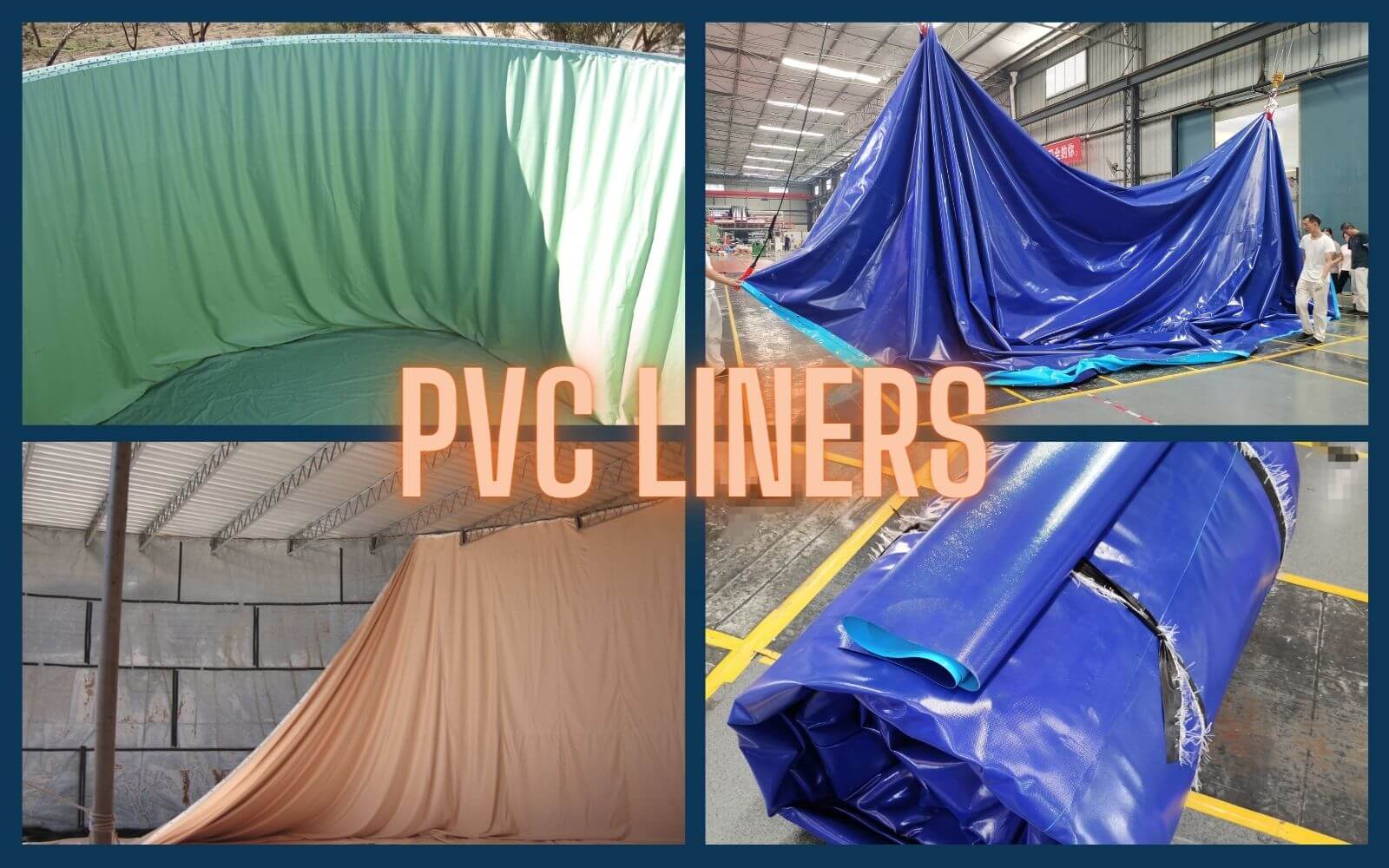PVC LINER
PVC, or Polyvinyl Chloride, liner is a synthetic material for its versatility and durability. It widely use in various industries for containment, protection, and waterproofing purposes. PVC liners come in various forms, from flexible sheets to geomembranes, making them adaptable to a wide range of applications
- Materials Used
PVC liners, which use 3-layers PVC material, compose the pond liner, spill containment pool, multi-layer liners and mono-layer liners, each serving a specific purpose.
For different purpose, the PVC material can be different. For aquaculture tanks, the 6P free PVC is needed; for gray water storage, the common PVC material is fine.
And thickness of the PVC material, usually range from 0.4mm -2.0mm. Understanding these materials is crucial for comprehending the liner’s capabilities and applications.
- Key Properties
PVC liner shows a unique set of properties, including resistance to chemicals, UV resistance and abrasion. We’ll explore these properties in detail and understand how they contribute to the material’s performance.
PVC liners find extensive use in diverse industries, each harnessing the material’s properties to meet specific needs.
PVC liners play a critical role in environmental protection, including lining landfills and waste containment. This is common way of PVC liner, using the most common PVC mateiral, thickness from 0.4mm to 2.0mm.
- Geomembrane in Civil Engineering
PVC geomembranes are used in civil engineering projects for applications such as canal lining and reservoirs.
Pond liners are essential in aquaculture, using 6P free PVC mateirals, which is safety to fish and shrimp farming, ensuring the containment and protection of valuable aquatic ecosystems.
- Roofing and Waterproofing
PVC liner in roofing and waterproofing systems, safeguarding structures from water damage.
Using soft liners, there have numerous advantages :
- Longevity, based on the PVC property, the lifespan is over 10 years in right usage.
- Cost-effectiveness, compare with the traditional pond, the liner can save money.
- Ease of installation, soft liner, the way to install it is unfold, layout the liner, fix the points, done.
In conclusion, PVC are versatile, reliable, and cost-effective materials that have found their way in various industries in liners . Their properties make them invaluable for containment, protection, and waterproofing applications. Whether you’re involved in construction, environmental protection, or aquaculture, PVC liner offers a best solution to meet your specific needs.
1. Are PVC liners environmentally friendly?
- PVC liner is eco-friendly when used in containment and environmental protection applications, asthe liner is working on preventing harmful waste leakages.
2. Can soft liners use for potable water storage?
- Yes, we can use the TPU material for the liner, the TPU meets the FDA which can use for drinking water storage.
3. How long do PVC liners typically last?
- The lifespan of PVC liner depends on factors like quality, installation, and usage, as usal, the lifespan is over 10 years.
4. Are flexible liners suitable for extreme temperatures?
-
Yes, the working temperature from -40~90 celcius degree.
5. Can liners be repaired if damaged?
- Yes, you can repair the liner using the repair kits which is delivered with the liners.








